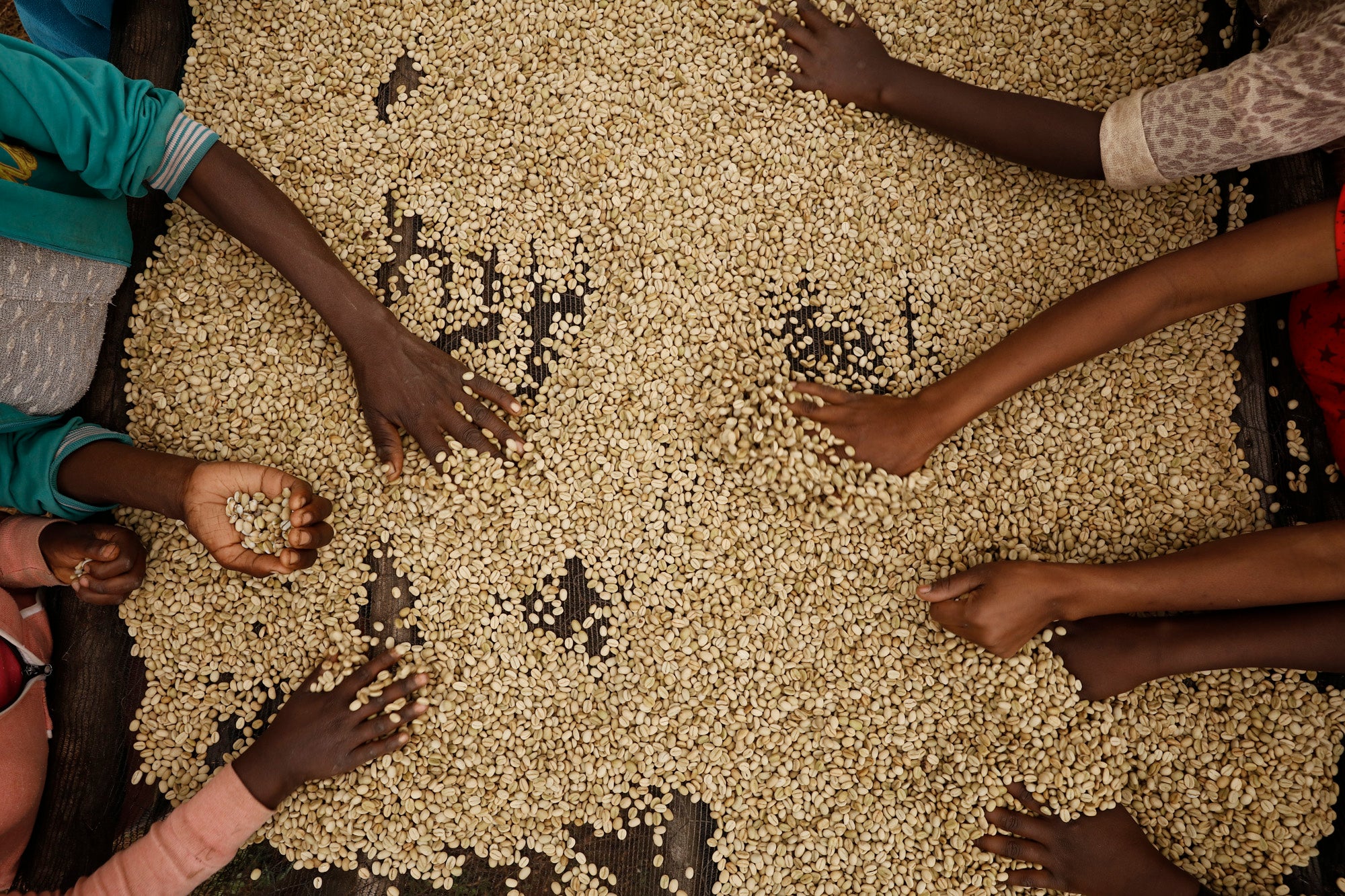Carlos Ureña Ceciliano & Ana Ureña Ceciliano - La Pira
 Location: Santa María de Dota, Tarrazú, Costa Rica
Location: Santa María de Dota, Tarrazú, Costa Rica
Farm name: Finca La Pira
Farm Size: 7 hectares
Elevation: 1650 meters above sea level
Varietals: Typica, Catuaí, Caturra
Bought since: 2019
Carlos is working with an interesting mixture of science and biodynamic agriculture. He is going out in the morning to hear where the birds are singing, telling him what is going on where among the coffee trees, analysing the farm by nature. Where the birds are gives him an indication of ripeness, flowering and challenges at the farm. He is making his own fertilizer and using the waste energy of the coffee processing for the coffee pulper.
Visiting La Pira and walking the farm, you never want to leave. You want to hear more about Carlos harvesting methods and turn upside down on more of his theories. With the whole family - Ureña Ceciliano, Carlos’ daughter, called Ana Ureña Ceciliano, is a great support and keeping the business on track. His grandchildren like spending time at La Pira too.
Don Carlos Ureña Ceciliano , who is owning the La Pira-farm in Dota, Terrazu, Costa Rica is an unique producer. On his 7 hectare of land, he is thinking about what the nature is giving him and how he may use it most wisely. For example he is making his own micro organisms and is using the rest product from the process and dry mill into gas to heat up the house and as energy to the de-pulper. But he is also extremely scientific and is doing things his own way. He is one of the most talented producers we know, and the reasons La Pira appeared in the Cup of Excellence.
After inheriting the family farm, Carlos worked for many years as a certified organic coffee producer, but he realized doing so was just not possible on this farm. Organic coffee is good, but not possible for everyone. The yield was very, very affected by leaf rust a few years back. So Carlos looked for alternatives, while still holding organic and biodynamic principles very close to his heart. For instance, instead of using chemicals to control the weeds, he has sheep roaming freely among the coffee plants eating the weeds (and strangely leave the coffee plants alone). They work as automatic and mobile 'fertilization units' (nature’s a wonderful thing). This has eliminated the need for herbicides. This is the kind of thinking Carlos has about coffee. Salary for pickers are generally good in Costa Rica, but many farmers are using workers from neighbouring countries, paying cheaper salaries and sometimes working harder during the harvest. Carlos is using local workers and paying the workers more than the government established wages.
Learn More
- Choosing a selection results in a full page refresh.
- Press the space key then arrow keys to make a selection.
